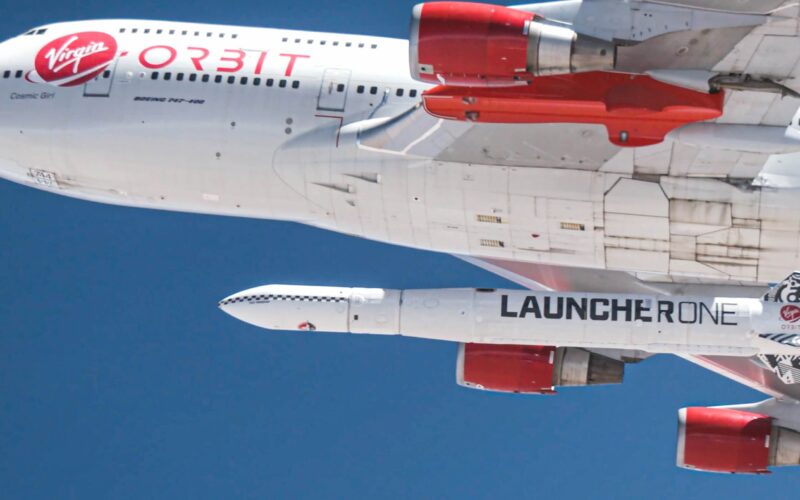Cosmic Girl, a Boeing 747 converted into an airborne launch platform by Virgin Orbit, has attempted to conduct the first orbital launch from British soil.
While the launch was successful, the mission ended in failure after “an anomaly” prevented the payload from entering orbit, Virgin Orbit claimed.
Half-way there
The aircraft took off from Spaceport Cornwall, also known as Cornwall Airport Newquay (NQY), at 10:02 PM GMT on January 9, 2022.
After climbing to approximately 35,000 feet (10.6 kilometers), the aircraft released the LauncherOne rocket while flying off the coast of Ireland.
The mission proceeded as planned, and the rocket began to coast around the Earth, preparing to deploy the payload.
However, at 11:46 PM GMT a message was posted to the Virgin Orbit Twitter account, announcing that a problem had occurred.
The company has issued no further explanation but published another tweet shortly afterwards stating that it will publish more information as soon as possible.
A press release, published in the morning of January 10, also failed to explain the nature to the “anomaly”.
“However, at some point during the firing of the rocket’s second stage engine and with the rocket travelling at a speed of more than 11,000 miles per hour, the system experienced an anomaly, ending the mission prematurely,” the release said.
The company added that despite ultimately ending in failure, the mission still marked a number of first-time achievements.
“We will work tirelessly to understand the nature of the failure, make corrective actions, and return to orbit as soon as we have completed a full investigation and mission assurance process,” Dan Hart, CEO of Virgin Orbit, is quoted as saying in the release.
An unusual mission
The mission, dubbed “Start Me Up”, carried eight small satellites, including two cubesats developed by the UK Ministry of Defense, the first-ever satellite developed in Wales, and the first to be developed in Oman.
Announced in mid-2022, “Start Me Up” was scheduled to be Cosmic Girl’s first international mission and the first of many launches Virgin Orbit plans to conduct abroad.
The aircraft, an ex-Virgin Atlantic 747-400, was converted into an aerial launch platform between 2007 and 2021. It conducted its first successful commercial launch in July 2021 and has been regularly conducting missions ever since.
Along with Orbital Sciences’ Lockheed L-1011 Tristar, named Stargazer, and Scaled Composites Stratolaunch, the largest aircraft ever constructed, the Cosmic Girl belongs to the category of aircraft designed to launch small rockets after lifting them into the stratosphere, essentially replacing the first stage of a conventional rocket.
Aerially launched rockets have a number of benefits in comparison with conventional ones, such as the ability to conduct launches from unprepared locations and at short notice.
However, they tend to be pricier than regular launches when it comes to cost-per-kilogram of payload. Their payloads also tend to be of limited weight, as the cargo capacity of the current generation of aerial launch platforms is relatively small.
Despite being converted from some of the largest airliners to ever fly, those launchers usually can’t lift more than several tens of tons, which, along with the rocket fuel that must be carried, places aerially launched rockets into the category of small orbital vehicles.

